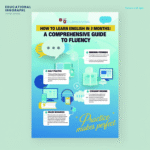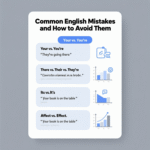Achieving a band score of 8+ in IELTS Speaking is a significant milestone for non-native English speakers aiming to study, work, or migrate to English-speaking countries. The IELTS Speaking test assesses fluency, coherence, lexical resource, grammatical range, accuracy, and pronunciation. Scoring 8 or higher demonstrates near-native proficiency, requiring strategic preparation, consistent practice, and a deep understanding of examiner expectations. This comprehensive guide provides actionable strategies, detailed techniques, and practical tips to help candidates excel in the IELTS Speaking test and secure a top score.
- Understanding the IELTS Speaking Test Structure
- Part 1: Introduction and Interview (4–5 minutes)
- Part 2: Individual Long Turn (3–4 minutes)
- Part 3: Two-Way Discussion (4–5 minutes)
- Key Criteria for Scoring 8+ in IELTS Speaking
- Preparation Strategies for IELTS Speaking Success
- Step 1: Build a Strong Foundation
- Step 2: Develop Topic-Specific Vocabulary
- Step 3: Practice Speaking Daily
- Step 4: Simulate Real Test Conditions
- Step 5: Work with a Professional Tutor
- Advanced Techniques for Band 8+ Performance
- Mastering Idiomatic Expressions
- Using Rhetorical Devices
- Engaging the Examiner
- Handling Difficult Questions
- Common Mistakes to Avoid in IELTS Speaking
- Overusing Memorized Answers
- Speaking Too Fast or Too Slowly
- Neglecting Pronunciation Details
- Providing Short Answers in Part 1
- Sample Responses for Band 8+
- Part 1 Sample: “What’s your favorite type of music?”
- Part 2 Sample: “Describe a place you’d like to visit.”
- Part 3 Sample: “Why do people enjoy traveling?”
- Recommended Resources for IELTS Speaking Preparation
- Creating a 30-Day Study Plan for IELTS Speaking
- Tips for Test Day Success
- Recommendations and Suggestions
- Frequently Asked Questions (FAQs)
Understanding the IELTS Speaking Test Structure
The IELTS Speaking test lasts 11–14 minutes and consists of three parts, each designed to evaluate different aspects of spoken English. Familiarity with the structure is crucial for effective preparation.
Part 1: Introduction and Interview (4–5 minutes)
In this section, examiners ask questions about familiar topics such as family, hobbies, work, or studies. The goal is to assess basic conversational skills, fluency, and comfort with everyday topics.
-
Key Focus Areas: Respond with clear, concise answers while showcasing a range of vocabulary and grammatical structures. Avoid one-word answers or overly rehearsed responses.
-
Example Question: “What do you do in your free time?”
Sample Response: “In my free time, I enjoy exploring outdoor activities like hiking and cycling, as they help me unwind and stay physically active. I also have a keen interest in reading historical fiction, which allows me to immerse myself in different cultures and eras.”
Part 2: Individual Long Turn (3–4 minutes)
Candidates receive a cue card with a topic and prompts, given one minute to prepare, and must speak for 1–2 minutes. This part tests the ability to speak at length, organize thoughts, and maintain coherence.
-
Key Focus Areas: Structure the response with an introduction, main points, and conclusion. Use varied vocabulary and complex sentence structures.
-
Example Cue Card: “Describe a memorable event in your life.”
Sample Response Strategy: Begin with a brief overview, describe the event in detail, explain its significance, and conclude with its lasting impact.
Part 3: Two-Way Discussion (4–5 minutes)
This section involves in-depth questions related to the Part 2 topic, exploring abstract ideas and issues. Examiners assess the ability to express opinions, justify arguments, and use advanced language.
-
Key Focus Areas: Provide reasoned arguments, use hypothetical language (e.g., “If I were to…”), and demonstrate critical thinking.
-
Example Question: “How do memorable events shape a person’s life?”
Sample Response: “Memorable events often serve as turning points, shaping one’s perspective and priorities. For instance, achieving a personal goal can boost confidence and resilience, encouraging individuals to pursue ambitious endeavors.”
Key Criteria for Scoring 8+ in IELTS Speaking
To achieve a band score of 8+ in IELTS Speaking, candidates must excel in four assessment criteria: Fluency and Coherence, Lexical Resource, Grammatical Range and Accuracy, and Pronunciation. Below, we explore each criterion in detail.
Fluency and Coherence
Fluency refers to the ability to speak smoothly without excessive hesitation, while coherence ensures ideas are logically organized and connected. Band 8 candidates speak fluently with minimal pauses, using cohesive devices like “moreover,” “consequently,” and “on the other hand.”
-
Tips to Improve Fluency:
-
Practice speaking on diverse topics for 1–2 minutes without stopping.
-
Use fillers sparingly (e.g., “well,” “you know”) and focus on natural transitions.
-
Record and analyze speeches to identify hesitations or repetitive phrases.
-
-
Tips to Enhance Coherence:
-
Structure responses with clear introductions, body, and conclusions.
-
Use signposting language (e.g., “Firstly,” “In addition”) to guide the examiner.
-
Practice linking ideas logically, e.g., “This leads to…” or “As a result.”
-
Lexical Resource
A strong lexical resource demonstrates a wide vocabulary, including idiomatic expressions, collocations, and precise word choices. Band 8 candidates use sophisticated vocabulary naturally and avoid overusing basic terms.
-
Strategies to Expand Vocabulary:
-
Learn topic-specific words (e.g., for “environment”: “sustainability,” “carbon footprint”).
-
Practice paraphrasing to avoid repetition (e.g., “happy” → “delighted,” “overjoyed”).
-
Incorporate idioms like “hit the nail on the head” or “a blessing in disguise” appropriately.
-
-
Example Application: Instead of saying, “I like to read books,” say, “I’m an avid reader who relishes diving into thought-provoking literature.”
Grammatical Range and Accuracy
Band 8 candidates demonstrate a wide range of sentence structures with near-native accuracy. Complex sentences, conditionals, and passive voice are used confidently.
-
Techniques to Improve Grammar:
-
Practice complex structures like relative clauses (e.g., “The book, which was recommended by my friend, inspired me greatly”).
-
Use a mix of simple, compound, and complex sentences to showcase versatility.
-
Review common errors (e.g., subject-verb agreement, tense consistency) through grammar exercises.
-
Pronunciation
Pronunciation at band 8 is clear, with accurate stress, intonation, and minimal accent interference. Candidates speak naturally, ensuring the examiner understands without effort.
-
Tips to Enhance Pronunciation:
-
Practice shadowing native speakers to mimic stress and intonation patterns.
-
Focus on word stress (e.g., “RE-cord” vs. “re-CORD”) and sentence rhythm.
-
Use online tools like ELSA Speak or YouGlish to refine specific sounds.
-
Preparation Strategies for IELTS Speaking Success
Scoring 8+ in IELTS Speaking requires a structured preparation plan. Below, we outline a step-by-step approach to build confidence and proficiency.
Step 1: Build a Strong Foundation
Understand the test format, scoring criteria, and examiner expectations. Familiarity reduces anxiety and helps candidates focus on performance.
-
Action Plan:
-
Download official IELTS practice materials from the British Council or IDP websites.
-
Watch sample speaking tests on YouTube to observe band 8+ responses.
-
Join IELTS preparation forums on platforms like Reddit or X to exchange tips with other candidates.
-
Step 2: Develop Topic-Specific Vocabulary
The IELTS Speaking test covers predictable topics like education, technology, health, and travel. Building a robust vocabulary for these areas ensures flexibility and precision.
-
Common Topics and Vocabulary:
-
Education: “curriculum,” “pedagogy,” “lifelong learning.”
-
Technology: “innovation,” “digital transformation,” “artificial intelligence.”
-
Environment: “renewable energy,” “biodiversity,” “climate change mitigation.”
-
Health: “well-being,” “holistic approach,” “mental resilience.”
-
-
Practice Activity: Create flashcards for 10 words per topic and use them in sentences daily.
Step 3: Practice Speaking Daily
Consistent practice is essential for fluency and confidence. Dedicate 30–60 minutes daily to speaking exercises.
-
Practice Ideas:
-
Monologue Practice: Choose a Part 2 cue card topic and speak for 2 minutes without stopping.
-
Partner Practice: Pair with a study buddy or language tutor to simulate Part 3 discussions.
-
Self-Talk: Describe daily activities aloud to build spontaneous speaking skills.
-
Step 4: Simulate Real Test Conditions
Replicating the test environment prepares candidates for the pressure of the actual exam.
-
Simulation Tips:
-
Use a timer to practice Part 2 (1-minute preparation, 2-minute speech).
-
Record responses and evaluate them against band descriptors.
-
Seek feedback from teachers or native speakers to identify areas for improvement.
-
Step 5: Work with a Professional Tutor
A qualified IELTS tutor provides personalized feedback, corrects errors, and refines techniques.
-
Choosing a Tutor:
-
Look for certified instructors with experience in IELTS preparation.
-
Opt for online platforms like Preply or Italki for flexible scheduling.
-
Request mock tests with detailed feedback on all four criteria.
-
Advanced Techniques for Band 8+ Performance
To stand out and achieve 8+ in IELTS Speaking, candidates must go beyond basic preparation. Advanced techniques focus on sophistication, authenticity, and examiner engagement.
Mastering Idiomatic Expressions
Using idioms naturally demonstrates a high level of language proficiency. However, idioms must fit the context to avoid sounding forced.
-
Examples of Idioms:
-
“Bite the bullet” (to face a difficult situation bravely).
-
“The ball is in your court” (it’s your decision now).
-
“A drop in the ocean” (a small contribution to a larger issue).
-
-
Practice Tip: Learn 2–3 idioms per week and use them in mock responses to ensure natural integration.
Using Rhetorical Devices
Rhetorical devices like metaphors, analogies, and repetition enhance the impact of responses.
-
Example Application:
-
Question: “Why is teamwork important?”
-
Response: “Teamwork is like a symphony orchestra—each member plays a unique role, but when harmonized, the result is a masterpiece far greater than the sum of its parts.”
-
Engaging the Examiner
A band 8+ candidate engages the examiner through confident body language, eye contact, and a conversational tone.
-
Tips for Engagement:
-
Smile and maintain eye contact to build rapport.
-
Use varied intonation to convey enthusiasm and emotion.
-
Avoid monotonous delivery by emphasizing key words and pausing for effect.
-
Handling Difficult Questions
Part 3 often includes challenging, abstract questions. Candidates must stay calm and provide thoughtful answers.
-
Strategy for Tough Questions:
-
Acknowledge the question’s complexity (e.g., “That’s an interesting question…”).
-
Use a framework like PEE (Point, Explain, Example) to structure responses.
-
If unsure, pivot to a related topic while maintaining relevance.
-
Common Mistakes to Avoid in IELTS Speaking
Even well-prepared candidates can fall into traps that lower their scores. Below are common pitfalls and how to avoid them.
Overusing Memorized Answers
Examiners penalize rehearsed responses that sound unnatural. While preparation is key, responses should feel spontaneous.
-
Solution: Practice answering questions in multiple ways to develop flexibility. Focus on ideas rather than scripted answers.
Speaking Too Fast or Too Slowly
Speaking too quickly can compromise clarity, while speaking too slowly may affect fluency.
-
Solution: Aim for a natural pace (around 120–150 words per minute). Practice with a metronome app to find a comfortable rhythm.
Neglecting Pronunciation Details
Mispronouncing common words or neglecting stress and intonation can lower scores.
-
Solution: Focus on problematic sounds (e.g., /θ/ vs. /s/ for non-native speakers). Use pronunciation apps to practice specific phonemes.
Providing Short Answers in Part 1
Brief responses in Part 1 limit opportunities to showcase language skills.
-
Solution: Expand answers with additional details or examples. For example, instead of “I live in a city,” say, “I live in a bustling city known for its vibrant cultural scene and historic landmarks.”
Sample Responses for Band 8+
To illustrate band 8+ performance, we provide sample responses for each part of the IELTS Speaking test.
Part 1 Sample: “What’s your favorite type of music?”
“I’m particularly fond of classical music because it has a timeless quality that transcends generations. Composers like Beethoven and Mozart create intricate melodies that evoke a range of emotions, from tranquility to exhilaration. I often listen to symphonies while working, as they enhance my focus and creativity. That said, I also enjoy contemporary genres like indie rock for their innovative rhythms and relatable lyrics.”
Part 2 Sample: “Describe a place you’d like to visit.”
“I’d love to visit Santorini, a breathtaking island in Greece renowned for its whitewashed buildings and azure domes perched atop volcanic cliffs. The allure of Santorini lies in its unique blend of natural beauty and cultural heritage. I imagine strolling through its narrow cobblestone streets, savoring local delicacies like fava beans and fresh seafood, and watching the sunset paint the sky in hues of orange and pink. Visiting Santorini would be a dream come true, as it embodies a perfect harmony of relaxation and exploration.”
Part 3 Sample: “Why do people enjoy traveling?”
“People are drawn to traveling because it offers a chance to break free from routine and broaden their horizons. Exploring new destinations exposes individuals to diverse cultures, cuisines, and perspectives, fostering personal growth and empathy. For instance, visiting a country like Japan might teach someone about the value of discipline and tradition, while a trip to Brazil could ignite a passion for vibrant festivals. Moreover, travel provides an opportunity to create lasting memories, whether through adventure, relaxation, or meaningful connections with others.”
Recommended Resources for IELTS Speaking Preparation
To achieve 8+ in IELTS Speaking, candidates should leverage high-quality resources tailored to the test.
-
Official IELTS Materials:
-
Cambridge IELTS books (volumes 10–18) for authentic practice tests.
-
British Council and IDP online resources for sample questions and tips.
-
-
Online Platforms:
-
IELTS Liz: Offers free speaking tips and sample answers.
-
IELTS Simon: Provides practical advice from a former examiner.
-
YouTube Channels: Channels like E2 IELTS and IELTS Daily offer video tutorials and mock tests.
-
-
Mobile Apps:
-
ELSA Speak: Improves pronunciation through AI-driven feedback.
-
IELTS Prep by British Council: Offers practice questions and tips.
-
SpeakNow: Simulates speaking tests with instant scoring.
-
-
Books:
-
Collins English for IELTS Speaking for targeted vocabulary and strategies.
-
Barron’s IELTS Superpack for comprehensive preparation across all sections.
-
Creating a 30-Day Study Plan for IELTS Speaking
A structured study plan ensures consistent progress toward a band 8+ score. Below is a 30-day plan tailored for IELTS Speaking preparation.
Week 1: Foundation Building
-
Day 1–2: Study the test format and scoring criteria. Watch band 8+ sample videos.
-
Day 3–4: Build vocabulary for Part 1 topics (e.g., family, hobbies). Practice 5 questions daily.
-
Day 5–7: Record 2-minute monologues on Part 2 topics. Focus on fluency and structure.
Week 2: Skill Development
-
Day 8–10: Practice Part 3 discussion questions. Use PEE framework for responses.
-
Day 11–13: Work on pronunciation. Practice shadowing native speakers for 20 minutes daily.
-
Day 14: Take a full mock speaking test and evaluate performance.
Week 3: Advanced Techniques
-
Day 15–17: Incorporate idioms and rhetorical devices into responses.
-
Day 18–20: Practice with a study partner or tutor to simulate Part 3 discussions.
-
Day 21: Analyze recordings to refine fluency, coherence, and pronunciation.
Week 4: Final Polish
-
Day 22–24: Focus on weak areas (e.g., grammar, vocabulary) identified in mock tests.
-
Day 25–27: Simulate full speaking tests under timed conditions.
-
Day 28–30: Review all topics, practice spontaneous responses, and build confidence.
Tips for Test Day Success
The day of the IELTS Speaking test can be nerve-wracking. Follow these tips to perform at your best.
-
Before the Test:
-
Get a good night’s sleep to stay alert and focused.
-
Practice light speaking exercises to warm up your voice.
-
Arrive early to familiarize yourself with the test center environment.
-
-
During the Test:
-
Stay calm and confident, even if you make a minor mistake.
-
Listen carefully to questions and ask for clarification if needed.
-
Smile and engage the examiner with a friendly demeanor.
-
-
After the Test:
-
Avoid overanalyzing your performance, as it can cause unnecessary stress.
-
Reflect on strengths and areas for improvement for future attempts, if needed.
-
Recommendations and Suggestions
To maximize your chances of scoring 8+ in IELTS Speaking, we recommend a multifaceted approach combining self-study, professional guidance, and consistent practice. Enroll in a reputable IELTS preparation course, either online or in-person, to receive expert feedback. Dedicate at least 2 hours daily to speaking practice, focusing on fluency, vocabulary, grammar, and pronunciation. Use technology, such as AI-driven apps and online forums, to supplement learning. Finally, maintain a positive mindset—confidence is key to delivering a natural, engaging performance.
Frequently Asked Questions (FAQs)
-
What is the IELTS Speaking test format?
The test lasts 11–14 minutes and includes three parts: an introduction and interview, a long turn, and a two-way discussion. -
How is the IELTS Speaking test scored?
It’s scored on four criteria: Fluency and Coherence, Lexical Resource, Grammatical Range and Accuracy, and Pronunciation. -
What does a band 8 score mean?
A band 8 indicates a very high level of proficiency, with fluent, accurate, and natural speech, minor errors, and sophisticated language use. -
How can I improve my fluency for IELTS Speaking?
Practice speaking daily on varied topics, record yourself, and use cohesive devices to connect ideas smoothly. -
What vocabulary should I focus on?
Learn topic-specific words, idioms, and collocations for common themes like education, environment, and technology. -
How important is pronunciation in IELTS Speaking?
Pronunciation is critical. Clear, natural pronunciation with accurate stress and intonation is essential for a high score. -
Can I use idioms in the speaking test?
Yes, but use idioms naturally and appropriately to avoid sounding rehearsed. -
How can I prepare for Part 2 cue cards?
Practice structuring responses with an introduction, main points, and conclusion. Time yourself to ensure 2-minute delivery. -
What if I don’t understand a question?
Politely ask the examiner to repeat or clarify the question. This won’t affect your score. -
How can I manage nervousness during the test?
Practice mock tests, use relaxation techniques like deep breathing, and maintain a positive mindset. -
Are accents penalized in IELTS Speaking?
No, accents are not penalized as long as pronunciation is clear and understandable. -
How long should my answers be in Part 1?
Answers should be 2–3 sentences, providing detail without being overly long. -
Can I prepare answers in advance?
Avoid memorizing answers, as examiners penalize rehearsed responses. Focus on flexible, spontaneous speech. -
What resources are best for IELTS Speaking practice?
Use Cambridge IELTS books, IELTS Liz, ELSA Speak, and mock tests with tutors. -
How can I track my progress?
Record practice sessions, compare against band descriptors, and seek feedback from tutors or native speakers.











